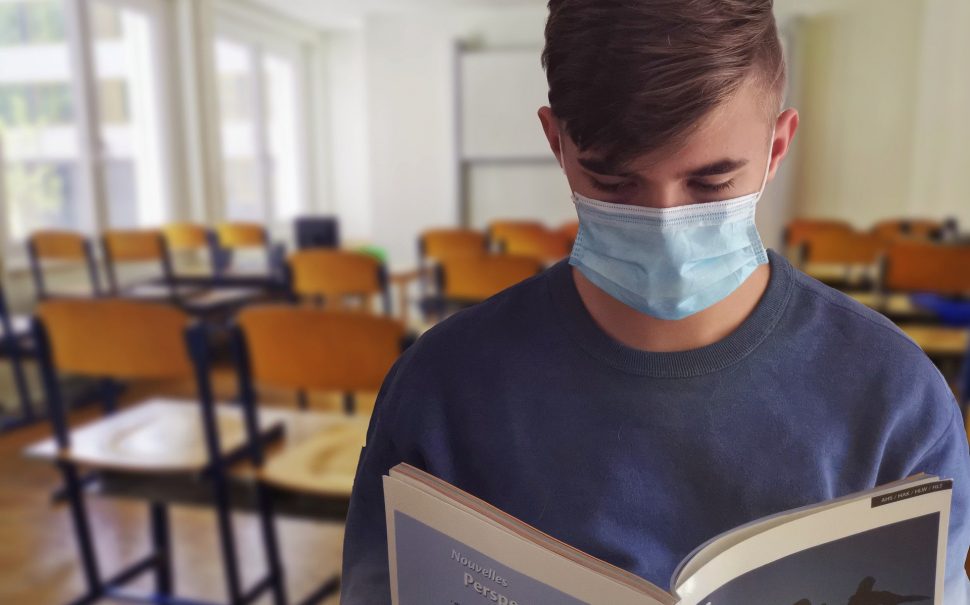The impact of the covid-19 pandemic on education has been vast and deep. In Scotland and across the UK, although education practitioners have used technology and found new and creative ways to meet the needs of learners, the pandemic, and responses to it, have profoundly affected young people’s lives. For young people who are at risk of exclusion, the impact is likely to have been worse.
A recent evidence review commissioned by the Scottish Covid-19 Inquiry considered the impact of Covid-19 on identified groups of children and young people known to face particular disadvantage within education. It found that young people experiencing poverty, those with additional support needs, some black and minority ethnic young people including gypsy travellers, LGBTQ+ young people, and those experiencing health difficulties, are likely to have experienced disproportionate negative impacts from the pandemic.
More research is needed to understand the duration and severity of impacts associated with the pandemic, but there is already evidence that pupils from low income and disadvantaged backgrounds experienced disproportionate impact, often affected by losing the security of a routine and access to physical, social and emotional support in schools. Inequalities have been exacerbated and amplified by Covid-19, and responses to it, creating periods of uncertainty, pressure and instability for those families already living in poverty.
The pandemic also made things harder for some groups of young people with additional support needs, including young carers, looked after children, and those experiencing poverty, disability, difficult family circumstances, trauma, bereavement and loss, or learning difficulties. Those who fared better during school closures were those young people who already had the skills, confidence, time and space to be self-directed learners, working independently to complete schoolwork. Parental support and engagement varied considerably as many parents/carers were juggling work demands whilst supporting their children’s learning.
There have been additional impacts for black and minority ethnic families, who were more likely to face increased social isolation, greater risks of poverty and financial and food insecurity and overcrowding, and for some families, communication and language barriers. Young people from Gypsy/Traveller communities may have also faced additional problems where accommodation limited their space to learn, and digital access and literacy issues amongst parents and carers may have resulted in greater exclusion from educational services and support, as well as increased risk of racist violence, hate crime and disproportionate cultural impact.
The evidence review also highlighted that LGBTQ+ young people may have experienced more online bullying and noticed more online prejudice during lockdown, and that they reported poorer emotional wellbeing both before and during lockdown than heterosexual young people.
Young people’s mental and physical health and wellbeing has been affected by the pandemic. Already increasingly significant pre-pandemic, there is strong evidence that Covid-19 has worsened the problem. The pandemic and the move to home learning contributed to high prevalence of mental health difficulties experienced by young people with many expressing concerns about anxiety, poor concentration, PTSD symptoms and feelings of isolation, low mood and challenges relating to family and social situations. This was often worse in low-income families and communities, with continued impact of money worries and health concerns relating to the virus. There were further challenges in accessing support services. Those who had not previously sought mental health support prior to the pandemic found it a challenge to access support during the period of lockdown, and access to many physical health services was paused.
Youth work is a key partner in Scotland’s education system. Youth work organisations play an important role in closing the poverty-related attainment gap by engaging young people who may otherwise struggle in education. Restrictions on face-to-face youth work have had a negative impact on the mental health and wellbeing of young people who rely on their services, particularly those most marginalised and vulnerable. Although the switch to online provision in youth work ensured some continuity for those who could access it, young people still missed in-person activities and relationships with practitioners.
The evidence review did not explicitly address school exclusions, and we do not yet fully understand the impact of covid-19 on experiences of or trends in school exclusion, but many of the issues that have been exacerbated by the pandemic, such as poverty, inequality, and challenges accessing face-to-face additional support, mental health services and youth work, are issues that already disproportionately affected young people who were excluded, or at risk of being excluded, from school. In Scotland, children with an additional support need, those living in the most deprived areas, and some ethnic minority children, are consistently more likely to be excluded than others. In 2020/21, children with an additional support need were five times likelier than other children to be excluded, and those living in the most deprived areas were almost four times as likely to be excluded as those in the least deprived areas. Gypsy/Traveller children were twice as likely as other children to be excluded.
The latest school exclusion statistics in Scotland indicate that overall, the rate of exclusions decreased in 2020/21, but this may be due to long periods of home learning during the pandemic for many pupils, with some disengaging from education altogether during this time without being excluded. Anecdotal evidence suggests that some young people may still be struggling to re-engage now.
The impact of the pandemic is still unfolding, and Excluded Lives will seek to understand how the pandemic has affected the experiences of those who experience, or are at risk of experiencing, exclusion, across the UK.
Read the evidence review referred to in this blog here: The Delivery of Education and Certification: Research Commission for the Scottish Covid-19 Inquiry
To find out more about Excluded Lives you can email Annie Taylor annie.taylor@ed.ac.uk or Gillean McCluskey Gillean.McCluskey@ed.ac.uk
To find out more about The Delivery of Education and Certification: Research Commission for the Scottish Covid-19 Inquiry email
Ian.Fyfe@ed.ac.uk (youth work)
Gillean.McCluskey@ed.ac.uk (further education and higher education) Rosa.Murray@ed.ac.uk, Zoe.Robertson@ed.ac.uk (schools)
